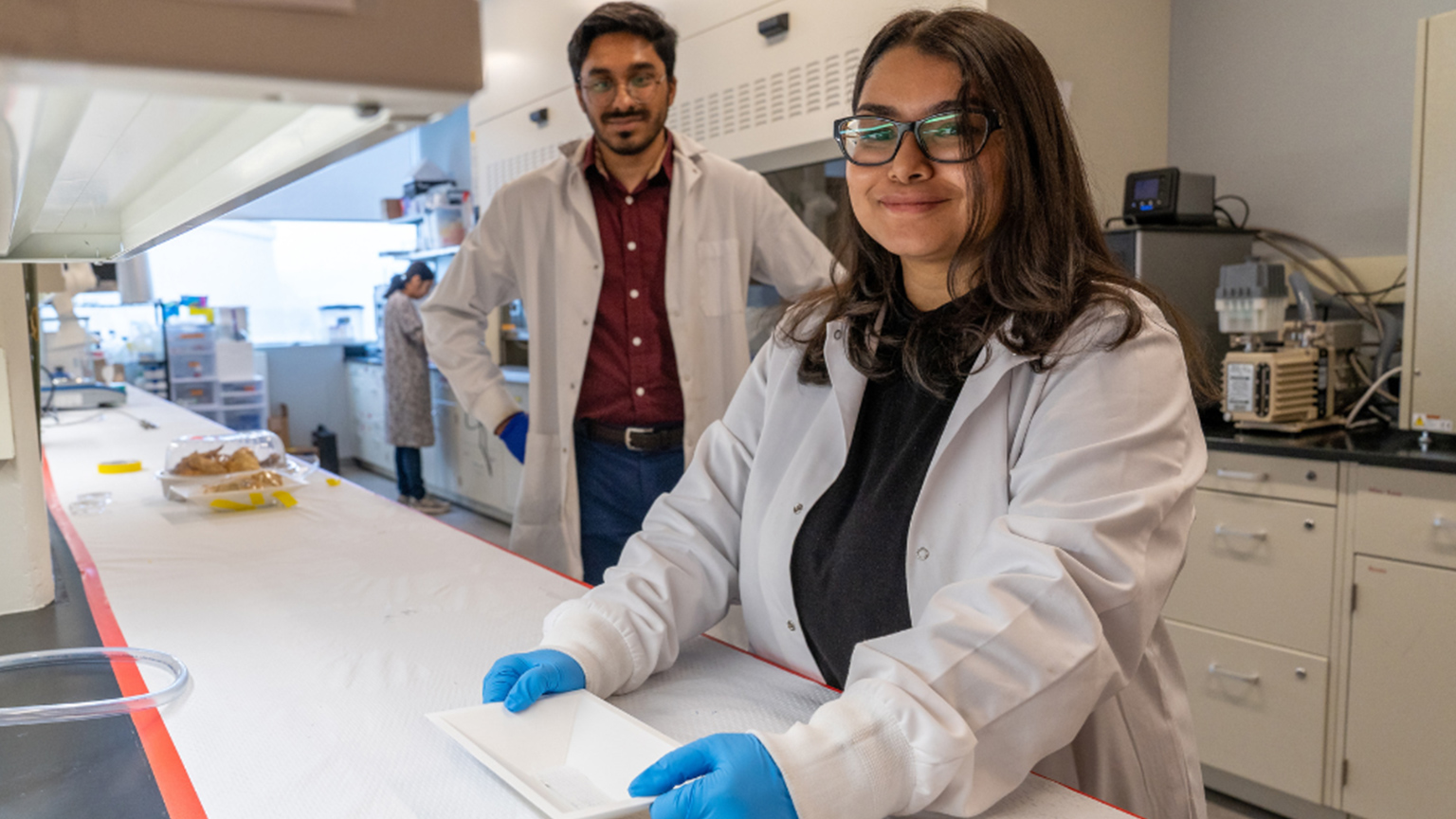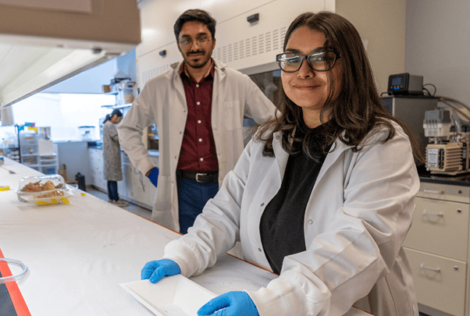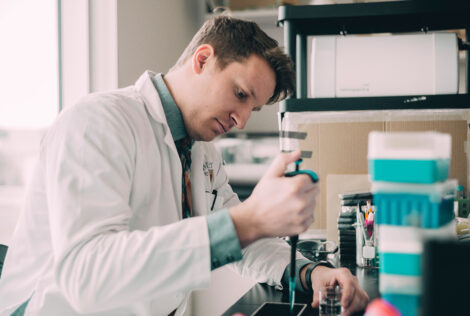

Research by PhD students in the Faculty of Engineering at McMaster University on foodborne illness has earned them the title of Food Scientists of the Year.
Akansha Prasad and Shadman Khan from the School of Biomedical Engineering are recipients of the Apples Award by New Food, a hub for news and business information for the food and beverage industry, presented at a gala in London, England.
Prasad and Khan have been developing a packaging tray to detect Salmonella and other dangerous pathogens in food like chicken. The detection system can be used without opening a food package nor using lab equipment. The students’ research draws from various fields including biochemistry, materials science, mechanical engineering and chemistry and is supported by Toyota Tsusho Canada.
Their “Lab-in-a-Package” work was published in Advanced Materials in the summer and has been well received by the food safety community. The Food Scientists of the Year is the latest accolade for the duo.
It is extremely gratifying to have been recognized by a global audience. We have worked tirelessly towards developing solutions for food safety and seeing the growing reach of our work only inspires us to work harder.
Prasad adds, “Having my name mentioned amongst such pillars of the food industry is truly a privilege and an honour. It reinforces our vision of creating a future where individual products are monitored for food contamination at every stage of the production pipeline.”
Both credit their mentors Carlos Filipe, Professor and Chair of the Department of Chemical Engineering, Tohid Didar, Associate Professor and Canada Research Chair in Nano-biomaterials, and Yingfu Li, Professor, Biochemistry and Biomedical Sciences, for exceptional support, mentorship and opportunities for growth.
Food safety is a global issue and these two talented researchers were able to substantially push the boundaries of the field. Their imagination, persistence and ability to inspire a large team of people allowed them to make their vision a reality.
Work continues in the lab for Prasad and Khan who cite this latest recognition of their work as “just the beginning.” Exploration into detection of other food contaminants including E. coli and Listeria is underway as is the creation of a system that amalgamates sensors for many pathogens. Future commercialization of these innovative solutions could increase impact.
“Clinical and economic ramifications of foodborne illness are severe,” explains Khan. “Through our research, we hope to alleviate the weight of this burden and work towards a future where the consumption of food products comes with the guarantee of safety.”


